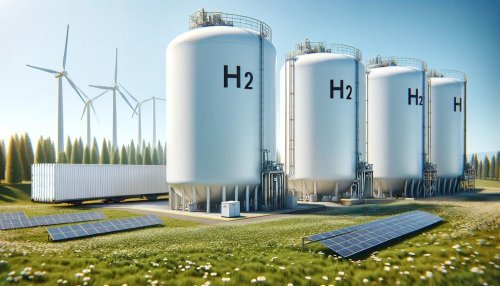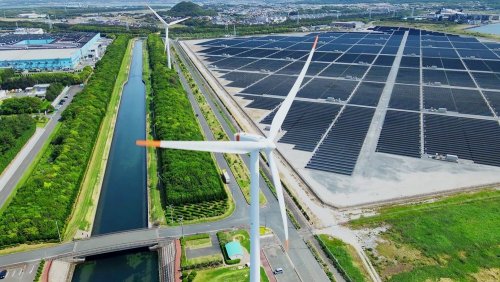The UK has unveiled a strategy to accelerate the deployment of renewable energy and carbon capture.
The strategy is part of a plan to increase investment in energy and a kind of US response to its green subsidies under the IRA inflation reduction law, according to Bloomberg.
It said the strategy does not currently involve significant new spending, with any significant funding expected in the Autumn Budget.
The material said that the measures of the plan are aimed at:
- expansion of the housing energy efficiency program;
- acceleration of the process of planning the development of renewable energy;
- announcement of the first projects that will be implemented within the framework of the support mechanism for carbon capture and storage in the country.
"We are not going to join our friends and allies in some distorted global subsidy race," said Chancellor of the Exchequer Jeremy Hunt. "We will direct public funding strategically to areas where the UK has a clear competitive advantage."
The article emphasized that the country's government has also appointed interim heads of the Great British Nuclear body, which should help attract future investments in new nuclear power plants.
"However, it is not clear how this will solve the most painful problem of nuclear energy in Great Britain – the search for billions of pounds for the construction of new stations", emphasized the authors.
It is noted that Great Britain has also announced funding for hydrogen production projects and an investment accelerator for heat pumps worth more than $37 million, which is to be multiplied by private investment. The Boiler House Modernization Scheme will also be extended until 2028, a program that provides grants to subsidize domestic heat pump installations.
It is noted that the UK government also announced:
- consultation on a potential carbon tax to prevent domestic industry from being undercut by imports from countries with more lenient environmental standards, to be rolled out from the mid-2020s;
- rejection of Drax Group Plc's application for Track-1 status for a biomass project with carbon capture and storage;
- a renewed environmental funding plan, which promises to continue the fight against deforestation-related project funding and consultation on the UK's environmental taxonomy;
- results of competitive rounds of hydrogen and carbon capture projects.
Earlier, EcoPolitic wrote, that the Chancellor of the Exchequer of Great Britain, Jeremy Hunt, said that the country plans to reduce energy consumption for buildings and industry by 15% by 2030.
As EcoPolitic previously reported, wind energy projects worth $25 billion in Great Britain may not be implemented without further assistance from the government.





